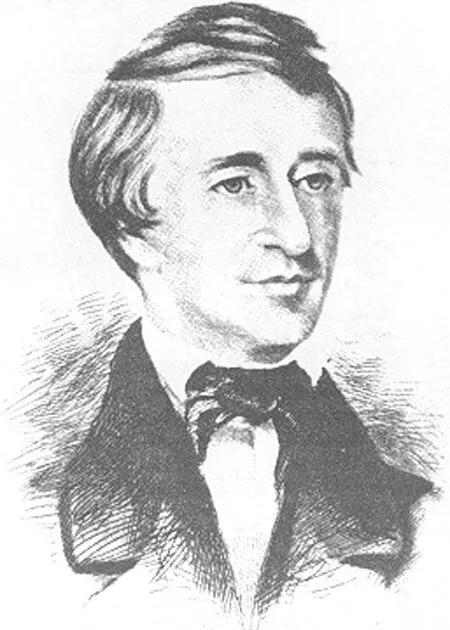Walden (Exerpt II) 《瓦尔登湖》(节选二)
By Henry David Thoreau 文/亨利·戴维·梭罗 译/李家真
Walden (Exerpt II) 《瓦尔登湖》(节选二)
By Henry David Thoreau 文/亨利·戴维·梭罗 译/李家真1

学生尽可阅读希腊文的荷马或埃斯库罗斯作品,绝无靡费光阴之虞,因为此举意味着他在一定程度上效仿了他们笔下的英雄人物,并且把晨间的时光献给了英雄的篇章。这样的英雄史诗,即便是用我们母语的字母排印出来,依然会呈现为一种堕落后世闻所未闻的语言。因此我们必须仔细推敲一字一句的含义,用尽自己的智慧、胆略和肚量,努力揣摩通常用法之外的超凡意蕴。粗制滥造的现代出版业虽说炮制了无数的译本,却不曾稍稍拉近我们与古代史诗作家之间的距离。他们的身影依然显得如此茕独,他们的作品虽然形诸印版,文字却依然显得如此陌生,如此古怪。哪怕只是学到了古代语言的些许词汇,青春时日与宝贵光阴也不算白费,因为这些词汇超越了市井的鸡毛蒜皮,包蕴着亘古常新的启迪与激励。农夫若能记下并念诵听来的几个拉丁词汇,绝不会徒劳无益。人们时或口出妄言,似乎以为古典学问终将让位于更加现代、更加实用的学科,勇于登攀的学生却会锲而不舍地研习经典,不管它用哪种语言写成,年代又有多么久远。须知经典何物,岂不就是人类最高贵思想的记载?经典是仅有的不朽神谕,为最现代的疑问提供了得尔斐和多多纳从未提供的答案。要说古老的事物就不值得研究的话,那我们连大自然也不用研究,因为她更加古老。有益的阅读,换句话说就是以求真的精神阅读真正的好书,是一种高贵的习练,比世风推崇的任何一种习练都更能磨砺意志。这种习练需要跟运动员一样的严格训练,需要几近一生的坚持不懈。读书的时候,读者必须跟作者一样殚精竭虑,一样专心致志。哪怕你会说作者使用的语言也不够,因为口头语跟书面语存在显著的差异,听见的语言和读到的语言是两码事。前者通常变动不居,不过是一种声音、一种腔调或一种方言,几乎类似于野兽的吼叫,我们可以不知不觉地从母亲那里学会它,就跟野兽学会叫唤一样。后者却是前者经由千锤百炼获得的成熟形式,如果说前者是我们的母语,后者便是我们的父语,是一种含蓄精练的表达方式,包含着耳朵无法听见的深厚意蕴,要想把它学会,我们必须经历重生的过程。中世纪那些只是会说希腊语或拉丁语的芸芸大众,虽然说土生土长,照样是读不懂用这些语言写成的天才著作,因为这些著作用的不是他们懂的那种希腊语或拉丁语,而是精练的文学语言。他们不曾学会古希腊和古罗马那些更为高贵的方言,用它们写就的文献对他们来说形同废纸,廉价的当代文学倒让他们珍爱有加。不过,欧洲的几个国家逐渐发展出了虽说粗糙也算独特的本国书面语,足以满足本国新兴文学的需要,原初的学问随之复兴,学者们也才拥有了从遥远时代拣选古人遗珍的眼力。古罗马和古希腊的普罗大众无法听见的东西,在漫长岁月之后得到了少数学者的解读,至今仍在解读它们的学者,也只是少数而已。
The student may read Homer or Aeschylus2埃斯库罗斯(Aeschylus,前525?—前456?),古希腊剧作家,享有“悲剧之父”的美誉。in the Greek without danger of dissipation or luxuriousness,for it implies that he in some measure emulate their heroes, and consecrate morning hours to their pages. The heroic books, even if printed in the character of our mother tongue, will always be in a language dead to degenerate times; and we must laboriously seek the meaning of each word and line, conjecturing a larger sense than common use permits out of what wisdom and valor and generosity we have. The modern cheap and fertile press, with all its translations,as done little to bring us nearer to the heroic writers of antiquity. They seem as solitary, and the letter in which they are printed as rare and curious,as ever. It is worth the expense of youthful days and costly hours, if you learn only some words of an ancient language, which are raised out of the trivialness of the street, to be perpetual suggestions and provocations. It is not in vain that the farmer remembers and repeats the few Latin words which he has heard. Men sometimes speak as if the study of the classics would at length make way for more modern and practical studies; but the adventurous student will always study classics, in whatever language they may be written and however ancient they may be. For what are the classics but the noblest recorded thoughts of man? They are the only oracles which are not decayed,and there are such answers to the most modern inquiry in them as Delphi and Dodona3古希腊的得尔斐神庙(Delphi)和多多纳神庙(Dodona)分别是太阳神阿波罗和主神宙斯颁降神谕的地方。never gave. We might as well omit to study Nature because she is old. To read well, that is, to read true books in a true spirit, is a noble exercise, and one that will task the reader more than any exercise which the customs of the day esteem. It requires a training such as the athletes underwent,the steady intention almost of the whole life to this object. Books must be read as deliberately and reservedly as they were written. It is not enough even to be able to speak the language of that nation by which they are written, for there is a memorable interval between the spoken and the written language, the language heard and the language read. The one is commonly transitory, a sound, a tongue,a dialect merely, almost brutish, and we learn it unconsciously, like the brutes, of our mothers. The other is the maturity and experience of that; if that is our mother tongue, this is our father tongue,a reserved and select expression, too significant to be heard by the ear, which we must be born again in order to speak. The crowds of men who merely spoke the Greek and Latin tongues in the Middle Ages were not entitled by the accident of birth to read the works of genius written in those languages; for these were not written in that Greek or Latin which they knew, but in the select language of literature. They had not learned the nobler dialects of Greece and Rome, but the very materials on which they were written were waste paper to them4这句话虽是笼统的议论,但中世纪的神职人员的确经常把古代典籍(材质通常是羊皮纸)当作废纸,在纸上抄写经文乃至记账,盖住了原有的文字。古代的一些典籍借此得以保存,学者们可以借助各种手段去辨识原有的文字,这样的典籍名为“重写本”(palimpsest)。, and they prized instead a cheap contemporary literature. But when the several nations of Europe had acquired distinct though rude written
〔〕
〔〕
languages of their own, sufficient for the purposes of their rising literatures, then first learning revived, and scholars were enabled to discern from that remoteness the treasures of antiquity. What the Roman and Grecian multitude could not hear, after the lapse of ages a few scholars read, and a few scholars only are still reading it.
川人,1972年生,曾任《中国文学》执行主编及《英语学习》副主编,现居北京,专事文字。写有大量随笔,译有《采果集》(Fruit-Gathering)、《流萤集》(Fireflies)、《吉檀迦利》(Gitanjali)、《园丁集》(The Gardener)、《丘吉尔传》(Churchill: An Unruly Life)、《先知》(The Prophet)、《沙与沫》(Sand and Foam)、《流浪者》(The Wanderer)、《福尔摩斯探案全集》(The Complete Sherlock Holmes)、《王尔德小说童话全集》(The Complete Oscar Wilde Stories)、《培根随笔全集》(Essays)等作品。译文节选自李家真译《瓦尔登湖》第三章“阅读”。

